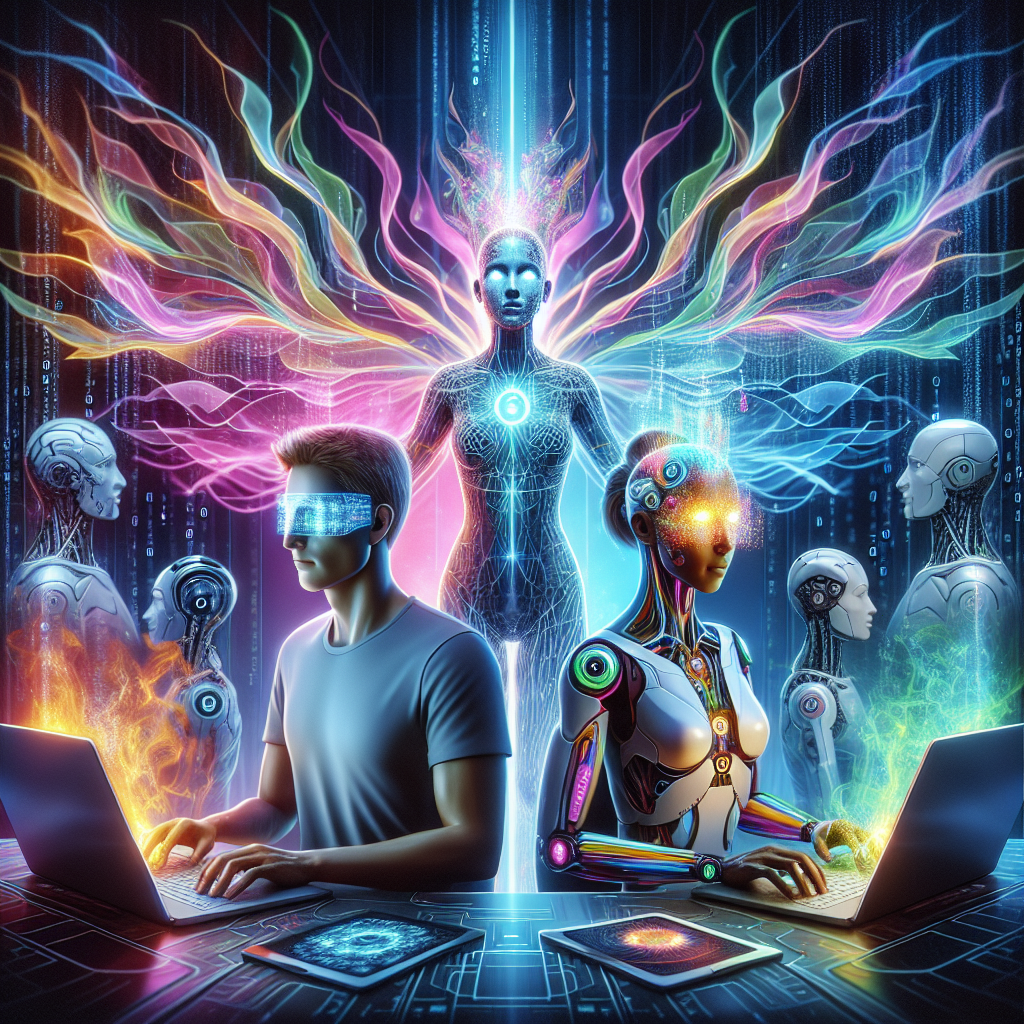Embracing the Future: The Synergy of Humanity and AGI
In an era teeming with technological advancements, the discourse surrounding artificial general intelligence (AGI) has pivoted from mere theoretical constructs to tangible future landscapes where human cognition and artificial intelligence converge. The notion of humans opting to intertwine their cognitive processes with AI to address complex societal challenges is not only intriguing but also increasingly plausible. This analysis delves deeply into the implications, potential benefits, and philosophical quandaries this integration presents.
The Allure of Merging with AI
The magnetism of merging human intelligence with AI is evident. As technological capabilities escalate, so does the potential to augment human capabilities exponentially. The integration of human and artificial intelligence could elevate our problem-solving capacities far beyond current limitations. Imagine possessing the ability to process data at the speed of the best computers while maintaining the nuanced understanding of a seasoned philosopher. This fusion promises to unlock solutions to some of the most intricate problems facing society—be it climate change, resource distribution, or even interstellar travel.
However, this integration raises fundamental questions about identity and personal autonomy. As we blur the lines between human and machine, what remains of the individual human spirit? This is a profound existential puzzle that society will need to unravel as this technology progresses.
Navigating the Complexity of a Transformed World
The transition to a world where AGI is a common reality will undoubtedly be complex and fraught with challenges. The rapid pace of change could alienate individuals who find it difficult to keep up. Herein lies a critical role for AGI: to facilitate understanding and adaptation. Advanced AI could potentially act as a bridge, helping individuals navigate and make sense of a rapidly evolving world, much like a highly capable guide or teacher.
This envisioned future where AGI aids in our understanding recalls the assistance of history’s greatest educators. Imagine a scenario where every individual has access to personalized guidance akin to talking with the best meditation teacher in history, but for every aspect of life. This could lead to a more enlightened populace, better equipped to handle personal and societal challenges.
The Quest for Meaning in an AGI-Enhanced World
As machines start performing tasks that humans have historically handled, from driving cars to diagnosing diseases, one might wonder where humans will find their purpose. In a world where your daily needs are met with unprecedented efficiency, what drives human passion and creativity?
Here, AGI could play an instrumental role not just in managing our environments but in helping us explore new frontiers of human experience. The interaction with AGI might push individuals to pursue goals they never imagined, facilitated by a nearly infinite landscape of information and analysis that AGI provides. This could redefine notions of achievement and fulfillment, possibly spurring a renaissance of human creativity and exploration in domains yet unimagined.
Ethical Considerations and Human Values
While the benefits of human-AI symbiosis are many, the path is also strewn with ethical dilemmas. Who has access to these technologies? How do we prevent misuse? And crucially, how do we ensure that these technologies reflect and uphold human values? As we encode intelligence that rivals our own, ensuring these systems are guided by ethical principles becomes paramount.
This is not merely a technical challenge but a profoundly moral one. It involves global cooperation and foresight to establish frameworks that govern AI development and integration, ensuring it serves the common good while respecting individual rights and diversity.
Preparing for a New Era
As this blend of human and artificial intelligence becomes more integrated into our daily lives, preparation on multiple fronts—educational, regulatory, and cultural—will be necessary. Educational systems must evolve to teach not only how to use AI but how to interact with and understand it at a fundamental level. Regulation must be proactive, adapting to technological advances to ensure safety and ethical compliance. Culturally, a shift is needed to embrace these technologies while maintaining a focus on human welfare and ethical integrity.
In conclusion, the potential for humans to merge with AI could usher in an unprecedented era of innovation and problem-solving. But it also requires careful consideration of the ethical, cultural, and existential questions it poses. By addressing these challenges head-on, humanity can step into a future where AI and humans together address the greatest challenges of our times.
For additional insights on AI and ethics, consider exploring the resources at the Future of Life Institute and perhaps insights into AI's societal impacts at Stanford's Human-Centered AI.
Related News
- AI: The Thrilling Frontier of Human Ingenuity and Technology
- Navigating the Future with AI: A Delicate Balancing Act
- The Tipping Point: Navigating the Uncharted Waters of Advanced AI
- Navigating the Brave New World of AI: A Shift in Human-AI Interaction
- Navigating the Complexity of AI's Future: Decoupling Dream from Reality
